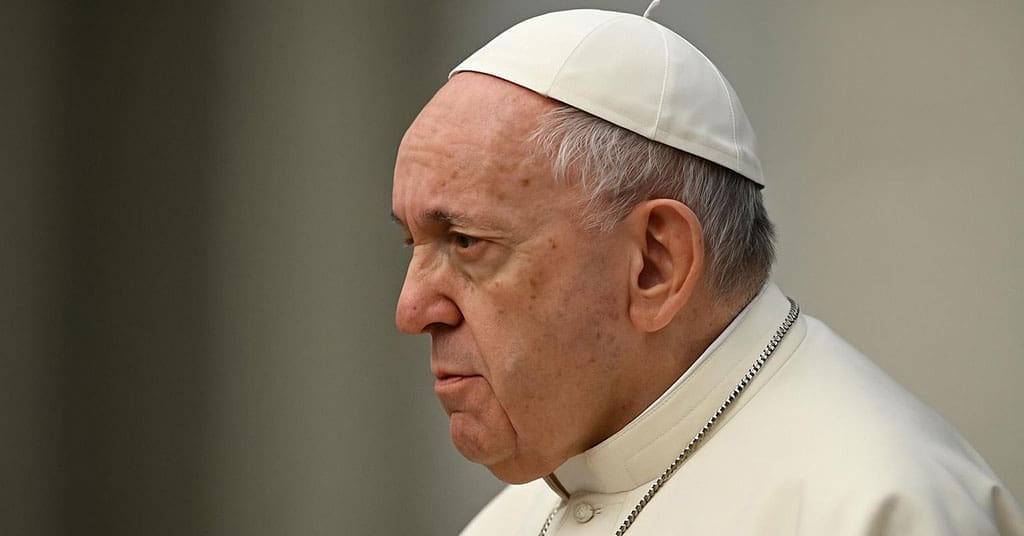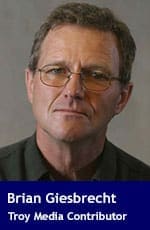Pope Francis’s careless genocide comment gave activists the fuel they needed, and Parliament rushed to judgment without examining the facts
Many Catholics will grieve the death of Pope Francis. But not all.
That’s because Francis was arguably the most political Pope in recent memory. Depending on your definition, he was either a socialist or a communist. There wasn’t a leftist leader or cause he didn’t embrace, and few conservative ones he supported. He regularly weighed in on progressive issues like climate change and offered political opinions, even when he seemed to lack a full understanding of the topic.
One such issue was Canadian history.
In 2021, the Tk’emlúps te Secwépemc First Nation announced that ground-penetrating radar had detected anomalies near the former Kamloops Indian Residential School, interpreted by some as possible unmarked graves of children. The claim made international headlines and sparked widespread outrage, although no remains have ever been unearthed.
During a late-night flight, the ailing octogenarian Pope, seemingly charmed by a young reporter, described Canada’s residential schools as “genocide,” a departure from his earlier, carefully prepared statement, which made no such accusation and echoed apologies offered by his predecessors. Those statements expressed regret for harm done but also acknowledged the good work of countless priests and nuns who dedicated their lives to educating Indigenous children.
In a moment of startling informality, Pope Francis appeared to accept the now-disputed Kamloops story as fact, effectively accusing thousands of priests, nuns, teachers and support workers—both Indigenous and non-Indigenous—of committing genocide. He appeared to accept at face value the now-disputed Kamloops story of secret burials and sinister deaths. In doing so, he didn’t just slander individuals—he changed Canadian history.
“Yes, it’s a technical word, genocide. I didn’t use it because it didn’t come to mind. But yes, I described it. Yes, it’s a genocide,” Francis said in July.
Indigenous activists wasted no time. They realized those words were exactly what they needed. Their initial genocide motion in Parliament—based on the Kamloops claim of 215 hidden graves—had failed. But with the Pope’s remarks, the political climate shifted.
NDP MP Leah Gazan led the charge. She had introduced a motion after the Kamloops claim first surfaced. She returned the following year with the same proposal, and this time, the Pope’s comments gave it new weight.
The motion declared Canada’s treatment of Indigenous children in residential schools as genocide—a declaration that, while not legally binding, carries moral and political weight. It passed quickly and without debate.
The irony? The very same activists who had earlier promoted deeply anti-Catholic conspiracy theories about atrocities committed by priests and nuns—stories that fuelled church burnings across Canada—were now treating every word from the Pope’s mouth as gospel. Non-believers appeared to be embracing some version of papal infallibility (a Catholic doctrine that, in specific cases, the Pope’s declarations are considered free from error)—if only when it suited them.
Meanwhile, Parliament failed to do its homework. Elected representatives never seriously investigated the many holes in the Kamloops story. Despite the global headlines, no excavations at the Kamloops site have confirmed the presence of remains. Multiple independent experts have raised concerns about the methodology and public interpretation of the findings.
Yet MPs allowed themselves to be swayed. Incredibly, they spent just 47 seconds debating and approving a motion that condemned their own country for genocide.
Much has been written about the lack of evidence behind the Kamloops claim. Suffice it to say, the “remains of 215 children” turned out to be an old sewage trench. Think about that—our nation was convicted of genocide based on a sewage trench.
Earlier popes took a more thoughtful approach. They acknowledged that wrongs were committed, that abuse occurred, and that some individuals within the system failed. But they also recognized that the goal of educating Indigenous children was legitimate, and that many students gained literacy and language skills that served them for life.
Those are the papal perspectives worth remembering.
Pope Francis did much good in his life, and many will reflect fondly on his legacy. But when it comes to Canada, his careless and misinformed comments on genocide did real harm. Let’s hope the next Pope is more careful with his late-night musings.
Brian Giesbrecht is a retired judge and a senior fellow at the Frontier Centre for Public Policy.
Explore more on Genocide, Residential schools
The views, opinions, and positions expressed by our columnists and contributors are solely their own and do not necessarily reflect those of our publication.
Troy Media empowers Canadian community news outlets by providing independent, insightful analysis and commentary. Our mission is to support local media in helping Canadians stay informed and engaged by delivering reliable content that strengthens community connections and deepens understanding across the country.




